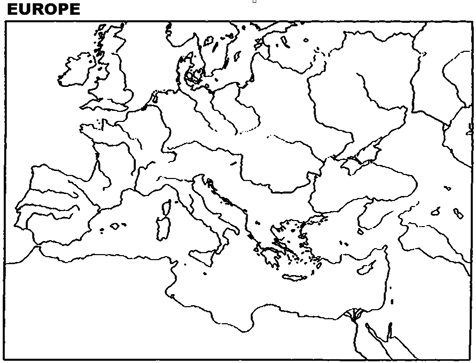Exam 3: Intellectual Transformation: the Scientific Revolution and the Age of Enlightenment
Which political thinker would generally support a benevolent dictator?
B
Key Terms Instructions: Please define the following key terms. Show Who? What? Where? When? Why Important?
Cesare Beccaria
Cesare Beccaria was an Italian philosopher and criminologist who lived during the 18th century. He is best known for his work "On Crimes and Punishments," which was published in 1764. Beccaria argued for the reform of the criminal justice system and advocated for the use of rational principles in the administration of justice. He believed that punishment should be proportional to the crime committed and that the severity of punishment should be based on the harm caused to society. Beccaria's ideas had a significant impact on the development of modern criminal law and the principles of justice. His work laid the foundation for the concept of due process and the protection of individual rights within the legal system. Beccaria's ideas continue to be influential in the fields of criminology and criminal justice, and his work is still studied and referenced by scholars and practitioners today.
Please use this outline map of Europe to answer the question(s).
 -On a blank map of Europe, show where the following individuals worked: Isaac Newton, Tycho Brahe, Galileo Galilei, Nicholas Copernicus, and René Descartes.
-On a blank map of Europe, show where the following individuals worked: Isaac Newton, Tycho Brahe, Galileo Galilei, Nicholas Copernicus, and René Descartes.
Isaac Newton worked in England, so you would mark a location in England on the map. Tycho Brahe worked in Denmark, so you would mark a location in Denmark on the map. Galileo Galilei worked in Italy, so you would mark a location in Italy on the map. Nicholas Copernicus worked in Poland, so you would mark a location in Poland on the map. René Descartes worked in France, so you would mark a location in France on the map.
Key Terms Instructions: Please define the following key terms. Show Who? What? Where? When? Why Important?
Encyclopedia
Key Terms Instructions: Please define the following key terms. Show Who? What? Where? When? Why Important?
Johannes Kepler
Key Terms Instructions: Please define the following key terms. Show Who? What? Where? When? Why Important?
Thomas Hobbes
The climax of the Scientific Revolution rests with the work of
Explain how Enlightenment ideas, in breaking with the medieval worldview, had an impact on the modern intellectual perspective.
Who wrote that people are "born neither good nor wicked; education, example, the government into which he is thrown....determines him to virtue or vice."?
Key Terms Instructions: Please define the following key terms. Show Who? What? Where? When? Why Important?
Galileo
Which French mathematician and philosopher is regarded as the founder of modern philosophy?
What was the general thinking of the philosophes in regard to gender?
Discuss why capitalists could find a champion in Adam Smith. Would Adam Smith have wanted to be such a champion? Can some issues that interested Adam Smith have a relationship to contemporary ones?
Key Terms Instructions: Please define the following key terms. Show Who? What? Where? When? Why Important?
salons
Key Terms Instructions: Please define the following key terms. Show Who? What? Where? When? Why Important?
John Locke
Which of the following established the inductive method of science?
______________ wrote Essay Concerning Human Understanding.
Enlightenment philosophes generally approved of Thomas Hobbes's
Key Terms Instructions: Please define the following key terms. Show Who? What? Where? When? Why Important?
universal gravitation
Filters
- Essay(0)
- Multiple Choice(0)
- Short Answer(0)
- True False(0)
- Matching(0)